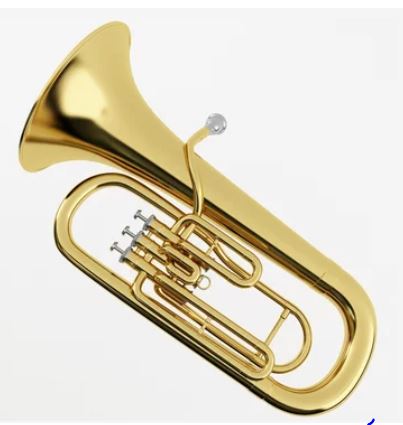The cornet, often overshadowed by its more famous cousin, the trumpet, is a hidden gem in the world of brass instruments. With its mellow tone and agile playability, the cornet has found its way into a wide range of musical genres, from classical and jazz to brass bands and marching bands, earning it a devoted following among musicians and enthusiasts alike.
https://swarlayasamagam.com//go/cornet
The cornet has a long and storied history, dating back to the early 19th century when it was developed as a hybrid of the trumpet and the French horn. Its compact size and conical bore give it a distinctive sound that sets it apart from other brass instruments, making it a popular choice for both solo and ensemble performances.
The cornet is similar in appearance to the trumpet, with a cylindrical body and a bell-shaped flare at the end. However, it differs in its conical bore, which gives it a warmer, more mellow tone compared to the brighter sound of the trumpet. The cornet typically features three piston valves, which are used to change the pitch of the instrument.
Playing the cornet requires a combination of breath control, embouchure (lip tension and placement), and finger dexterity. Basic techniques include producing different pitches by pressing the valves and controlling the airflow through the instrument. Advanced techniques such as vibrato, trills, and lip slurs allow players to add expression and nuance to their performances.
The cornet is a remarkably versatile instrument, capable of spanning a wide range of musical genres and styles. From the soaring melodies of classical concertos and orchestral works to the lively improvisations of jazz solos and brass band marches, the cornet has earned its place as a staple of virtually every musical tradition around the world.
Throughout history, the cornet has been embraced by countless musicians and performers, each bringing their own unique style and personality to the instrument. From classical virtuosos like Herbert L. Clarke and Maurice André to jazz legends like Louis Armstrong and Wynton Marsalis, the cornet has been a vehicle for some of the most iconic performances in music history.
Playing a musical instrument like the cornet offers a myriad of physical, mental, and emotional benefits. Not only does it improve lung capacity and respiratory health, but it also enhances cognitive function, memory, and problem-solving skills. Moreover, playing the cornet provides an outlet for self-expression and creativity, fostering a sense of accomplishment and fulfillment in players of all ages.
When selecting a cornet, it’s important to consider factors such as skill level, budget, and personal preferences. Different types of cornets are available, ranging from student models designed for beginners to professional-grade instruments favored by seasoned players. It’s also essential to choose a reputable manufacturer known for producing high-quality instruments that are durable and reliable.
Proper maintenance is essential for keeping your cornet in top condition. This includes regular cleaning, lubricating the valves, and storing the instrument in a protective case when not in use. It’s also important to avoid exposing the cornet to extreme temperatures or humidity, as this can cause damage to the instrument’s delicate components.
Whether you’re a seasoned player or just starting out, there are plenty of resources available to help you learn and improve your cornet skills. Online tutorials, instructional videos, and sheet music websites are all valuable tools for aspiring cornet players looking to hone their craft and connect with fellow enthusiasts.
The cornet has made its mark on popular culture in countless ways, from its use in movie soundtracks and television theme songs to its appearances in classical and contemporary music. Whether it’s the haunting strains of Edward Elgar’s “Nimrod” or the rousing brass fanfares of John Williams’ “Star Wars” theme, the cornet has a way of capturing the imagination and stirring the soul like no other instrument.
As technology continues to evolve, so too does the cornet. Innovations in materials, manufacturing techniques, and digital technology are paving the way for new and exciting advancements in cornet design and performance. Whether it’s improved playability, enhanced sound quality, or innovative new features, the future looks bright for this timeless instrument.
The cornet stands as a testament to the enduring power of music to inspire, uplift, and unite us. With its rich history, mellow tone, and versatile playability, the cornet continues to captivate audiences and musicians alike, reminding us of the transformative power of music to touch our hearts and souls.





Meine Leidenschaft als Webentwickler ist die Frontend-Entwicklung.
Als Webentwickler löse ich komplexe Probleme mit kreativen Ansätzen.